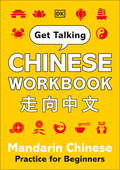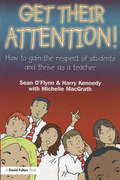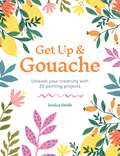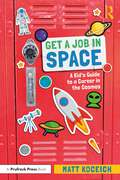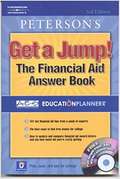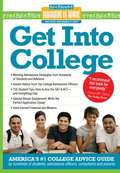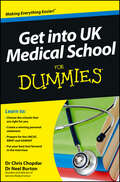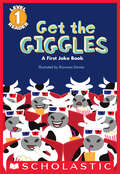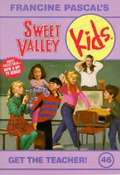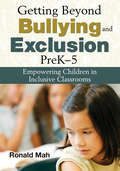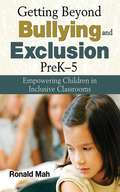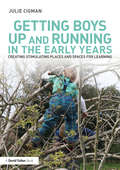- Table View
- List View
Get Started with Gouache: A Colorful Guide to Painting the World Around You
by Emma BlockA modern, easy-to-use, and authoritative guide to painting with gouache, including the basics on this exciting and centuries-old medium, techniques for all skill levels, and practice projects from an experienced author and illustrator.This charming and contemporary step-by-step guide to gouache (pronounced "gwash") is perfect for creative people who have dreamed of painting inspiring subjects from everyday life. Gouache is a water-based paint similar to watercolor that has the opacity and layerability of acrylic paints. It creates wonderful washes, allows for layering and texture, and dries quickly with a unique matte finish. Illustrator Emma Block presents everything you need to know about this whimsical and fun medium, including expert guidance on tools and materials and techniques that will make it easy to use. Thirty lessons cover subjects from simple, such as your morning coffee cup and bright lemons, to advanced, such as fluffy animals and portraits of your friends and family. All of this is accompanied by her workshop-honed instructions and step-by-step illustrations, which will help you build the skills and confidence to finish beautiful pieces of your own.
Get Talking Chinese Workbook: Mandarin Chinese Practice for Beginners
by DKA complete visual workbook for beginners learning Mandarin Chinese. A perfect companion to DK's Get Talking Chinese, sections follow a logical progression, starting with everyday words — such as "hello," "good-bye," and "thank you" — and ending with the essential vocabulary needed when shopping, ordering in a restaurant, or visiting a museum. Get Talking Chinese Workbook is more than just talk, too: An introduction to writing Chinese characters identifies the 200 most useful characters for readers to see, learn to identify, and try writing for themselves. Children, adults, and students of any age will benefit from this easy workbook, featuring plenty of knowledge-reinforcing practice and tips.
Get Their Attention!: Handling Conflict and Confrontation in Secondary Classrooms, Getting Their Attention!
by Sean O'Flynn Harry Kennedy Michelle MacgrathClassroom management is key to a successful teaching career. This book has survival advice for NQTs as well as ideas to develop the skills of more experienced teachers. It should: appeal directly to the reader with engaging examples from real classrooms; help readers to cope with every aspect of school life, including the staff room and teacher/parent meetings; and enable readers to pre-empt general classroom management problems.
Get Up & Gouache: Unleash your creativity with 20 painting projects
by Jessica SmithGet Up & Gouache shows you how to bring the vibrant and versatile medium of gouache to life. Get stuck in to 20 step-by-step projects that show you how to layer, blend and bloom in order to create beautiful and lively paintings ideal for prints, cards, gifts or simply the pleasure of painting.Packed with tips, tricks and techniques, Get Up & Gouache is ideal for beginners as well as providing inspiration for intermediate-level artists. Learn how to paint people and places and discover your own visual language. Find inspiration through projects on painting friends and family, flowers and nature and even your favourite furry friends.
Get Well, Crabby!: An Acorn Book (A Crabby Book)
by Jonathan FenskeTake a sick day with the ocean's crankiest crab!Pick a book. Grow a Reader!This series is part of Scholastic's early reader line, Acorn, aimed at children who are learning to read. With easy-to-read text, a short-story format, plenty of humor, and full-color artwork on every page, these books will boost reading confidence and fluency. Acorn books plant a love of reading and help readers grow!Oh no! Crabby doesn't feel well, and Plankton is determined to play doctor. But Plankton's ideas aren't always the most helpful. He takes his own temperature, wraps Crabby in bandages, and caters to Crabby's increasingly outrageous demands. Will Crabby get better before Plankton finally loses his cool?This timely story addresses a concern on every child's mind -- how can we help when our friends are sick? With comic speech bubbles and full-color artwork throughout, Geisel Award Honoree Jonathan Fenske's early reader series is sure to be a hit with new readers!
Get Your Elbow Off the Horn: Stories through the Years (Gallaudet New Deaf Lives #10)
by Jack R. GannonGet Your Elbow Off the Horn is a collection of interactions and observations written by Jack R. Gannon, a lifelong advocate for the Deaf community. Warm and amusing, Gannon’s stories begin with his rural childhood in the Ozarks and continue through his experiences as a student, educator, coach, husband, parent, and community leader. These vignettes reveal a down-to-earth family man who believed in making a difference one person at a time. Many of his recollections are brief sketches that reveal much about being Deaf—and about being human. From reflecting on the difficult choices parents must make for their children, to recounting awkward communication exchanges, Gannon marries good humor with a poignant advocacy for sign language rights. His stories preserve and share Deaf American life and culture as he experienced it.
Get Your Life Back Study Guide: Everyday Practices for a World Gone Mad
by John EldredgeYou don't need to abandon your life to get it back. You can restore it with sustainable practices that are within your reach. And you will never be the same...We live in soul-scorching times. The 24-7 onslaught of contemporary life—with its never-ending feed of global tragedies, demands for our attention, and pressures of work, family, and friends—has left us feeling ragged, wrung-out, and emptied. But if we have no margin in our lives, how do we find room to change anything?In this life-changing video Bible study (DVD/digital downloads sold separately), John Eldredge distills a lifetime of wisdom into five practical and ready-to-implement practices for putting your life back together:The one-minute pause,Benevolent detachment,Practicing kindness,Getting outside, andStepping back from technology.Together, these simple practices will add up to enable you to begin recovery, care for the neglected places in your soul, and rediscover the hidden life of God in you.Rest assured, the graces offered in this study are within reach of normal life. They're practicable and refreshing. God wants to come to us and restore our lives. We just need to put ourselves in places that allow us to receive his help. Designed for use with Get Your Life Back Video Study (sold separately).
Get Your Vote On! (High School Musical: Stories From East High #8)
by Beth Beechwood N. B. GraceThe school board has decided to renovate either the gymnasium or the auditorium, but Troy, Gabriella, and Sharpay think the students should be able to decide where the money should go. When the school board gives them a week to campaign before holding a vote, Troy and Sharpay organize a concert to inform the students of their options. Will the student body unite behind one idea? Or will they split into separate factions-breaking up friendships along the way? Bookshare has the other books in this series. Look for: #1 BATTLE OF THE BANDS, #2 WILDCAT SPIRIT, #3 POETRY IN MOTION, #4 CRUNCH TIME, #5 BROADWAY DREAMS, #6 Heart to Heart, #7 Friends 4Ever, #9 Ringin' It In, and #10 Turn Up The Heat.
Get a Clue (Sweet Valley High Senior Year #38)
by Francine PascalTia Ramirez's to do list: 1. Haircut 2. Study for French 3. Call Andy 4. Pick up cheese for mom's enchiladas 5. Decide what to do with the rest of my life.
Get a Job in Space: A Kid's Guide to a Career in the Cosmos
by Matt KoceichGet a Job in Space is your one-stop-shop to learning everything there is to know about working in space…and the STEM subjects you need to get there! From celestial science to intergalactic technology, discover what astronauts, technicians and engineers need to know to do their jobs. Would you rather study how plants grow on Mars than design a rocket? Explore your perfect career match, and dive into additional resources, classes and tips to help launch you into space. This book is a must-have for kids fascinated by the cosmos, astronauts and the people who get them there.
Get a Job in Technology: A Kid's Guide to a Career in Cool Gadgets and Wacky Electrics
by Matt KoceichGet a Job in Technology is your one-stop-shop to learning everything there is to know about working in tech…and the STEM subjects you need to get there! From techno math to smartphone science, discover what computer engineers, video game designers and programmers need to know to do their jobs. Would you rather design a video game than build a cell phone? Explore your perfect career match, and dive into additional resources, classes and tips. This book is a must-have for kids fascinated by awesome gadgets and the people who build them.
Get a Job!: Powerful Tips and Tools to Ace Any Interview
by Ron FryThree essential aides to help you land the job of your dreams in today’s competitive market. Ron Fry, the founder and president of Career Press for over three decades, is a sought after speaker, seminar leader, and expert authority on how best to prepare for the job interview process. From standout résumés to key questions and highly effective responses, Fry will show you how to get that job. 101 Great Answers to the Toughest Interview Questions: Thoroughly updated for today’s job market, this brand-new twenty-fifth anniversary edition will help you successfully prep for any interview—no matter how tough—with answers that will convince employers you are the best candidate for the position. 101 Smart Questions to Ask on Your Interview: The interview is not over when you hear: “Do you have any questions for me?” Ron Fry shows you how to take charge of the interview process and sell the company on you while obtaining the information you need to make sure you are sold on them. 101 Great Résumés: Find the résumé format that will showcase your unique background, situation, skill sets, and career goals—and ensure you land your dream job.
Get a Jump! The Financial Aid Answer Book
by Peterson'sProvides information of how to apply for financial aid.
Get a Life!: Creating a Successful Work-Life Balance
by Rick HughesIs work taking over your life? Is your life interfering with your success at work? Work-life balance is ever-evolving and can be hard to find and maintain, especially as your career develops and circumstances change. Get A Life! is a highly practical handbook to help you do just that. Written by experienced coach, counsellor and wellbeing consultant Rick Hughes, this book covers everything from assessing your own needs, delegation and workload management and the myths of perfectionism, to managing and investing in relationships at work and at home, considering professional and personal development, and creativity and self-worth. With a wealth of advice, case studies and useful action plans founded in over 25 years of real-world experience, Get A Life! will help you find the balance that works for you, now.
Get in the Game! (Step into Reading)
by Random HouseAn all-new Step 3 Step into Reading reader based on Space Jam: A New Legacy, starring LeBron James and the Looney Tunes!Basketball superstar LeBron James teams up with Bugs Bunny and the Looney Tunes for Space Jam: A New Legacy, the long-awaited reimagining of the original, beloved film. Boys and girls ages 5 to 7 will love this Step 3 Step into Reading leveled reader.Step 3 readers feature engaging characters in easy-to-follow plots about popular topics. For children who are ready to read on their own.
Get into College
by Rachel KornGetting into college is one of life's most daunting challenges. Why not let the experts help? The experts in this case include dozens of college consultants, admissions officers, parents, and, best of all, hundreds of students who have experienced the process firsthand. Individual chapters cover such topics as getting started, preparing for the SAT, deciding which colleges to apply to, perfecting applications and essays, putting one's best foot forward in an interview, and what to do for extracurricular activities and summer vacations. Additional chapters explain what to look for when visiting schools, how to get financial aid, getting support from counselors and parents, dealing with rejection and acceptance, and how to pick the right school. This expanded edition includes special "Counselor's Corner" features, material on "How to Survive Getting Your Kid into College," Harvard Law grad Jay Brody's discussion of how to write the best application essay, and much more.
Get into UK Medical School For Dummies
by Neel Burton Chris ChopdarGet the book and get into medical school. Sound simple? Well, it isn't. But Get into UK Medical School For Dummies contains the information you need to get ahead of the competition and give yourself the best possible shot at success. Doctors Chris Chopdar and Neel Burton guide you through the entire process from deciding whether a career in medicine is right for you to sitting for interviews. Along the way, they provide the proven advice and coaching that has resulted in hundreds of acceptance letters on topic such as:Why choose medicine (and why you may decide not to)Long term planning -- The A-levels, extracurricular activities, volunteer opportunities, and work experience that can make you a more attractive candidate; and what to do if you're lacking in these categoriesPersonal statement -- Plenty of insight and examples to help you create a winning and -- truly personal -- personal statementResearch -- Put together a plan that ensures you find a university that's right for youTest preparation -- An overview of the UKCAT and BMAT, preparation strategies, and sample questionsThe interview -- Common questions, how to tackle them, and the importance of body languageThe decision -- Tips on choosing between multiple offers!
Get the Giggles: A First Joke Book (Scholastic Reader, Level 1)
by ScholasticThis joke book is sure to tickle your funny bone!Why is it hard to play cards in the jungle?-There are too many cheetahs.What's a pirate's favorite letter?-Aaarrr!What time is it when an elephant sits on your fence?-Time to get a new fence.These hilariously simple jokes will have beginning readers rolling on the floor with laughter.
Get the Picture: 150+ Ways to Make the Most of Your Camera (Popular Photography)
by Dan Richards The Editors of Popular PhotographyThis illustrated handbook from the experts at Popular Photography covers everything you need to know about your new digital camera. Today&’s technology has made DSLR/ILC cameras more powerful (and more reasonably priced) than ever. Getting the perfect shot has never been easier—if you know how to get the most out of your machine. Get the Picture walks you through all the functions, modes, buttons, and dials on the latest standard models, providing solid technical advice in handy tips paired with beautiful imagery that demonstrates each tactic. You&’ll find sections on:DSLR Fundamentals Your go-to guide for basic camera functionality, including exposure, (aperture, ISO, and shutter speed, focus), and white balance.Next-Level Settings Once you&’ve mastered the essentials, take a tour through your camera&’s various shooting modes (aperture-priority, shutter-priority, portrait, macro, and more) and experiment with its on-camera flash, bracketing functions, and shooting RAW. Explore your lens&’s zoom, image stabilization, and other capabilities, too.Bonus Gear If you&’re looking to build a photography kit beyond your basic camera body, study up on accessory flash units, lenses, release triggers, and simple, inexpensive lighting modifiers.
Get the Picture? The Movie Lover's Guide to Watching Films (2nd Edition)
by Jim PiperClassic favorites, current pop films, hidden gems--they re all part of this new edition of the popular guide to watching and enjoying movies. In his witty and engaging text, author Jim Piper explains key concepts of film and uses fascinating side-by-side comparisons to explore relationships between movies as disparate as The Great Train Robbery and The Texas Chainsaw Massacre, High Noon and Blood Diamond, Raise the Red Lantern and The Pursuit of Happyness and all movies discussed are easily available on DVD for further study. Entertaining, readable, and full of insight, Get the Picture? will inspire readers to watch movies with a new sense of discovery and excitement.
Get the Teacher! (Sweet Valley Kids #46)
by Molly Mia Stewart Francine PascalIs Mrs. Otis leaving the second grade -- and being replaced by a student teacher? Not if Jessica and Elizabeth Wakefield have their way. They plan to have everyone in class make life miserable for Ms. Kovac so she won't want the job. And the plan works! Then Jessica finds out that Ms. Kovac won't be teaching ever again because she can't seem to handle kids. Now Jessica feels terrible. But can the class help Ms. Kovac -- without losing Mrs.Otis?
Getting Better Results from Spiritual Practice
by Robert A RussellIt is my hope that this book will meet the needs of those who have grown with me in spiritual understanding, in awareness of the height and depth of God's love, and in realization of man's Oneness with Him; and that those who are taking their first steps on this joyous journey will find through it the Wisdom whose ways are ways of pleasantness and all whose paths are peace.
Getting Beyond Bullying and Exclusion, PreK-5: Empowering Children in Inclusive Classrooms
by Ronald MahExamines why children with special needs are bullied, how teachers can prevent bullying, ways to work with overprotective parents, and how a self-esteem prescription plan can help.
Getting Beyond Bullying and Exclusion, PreK-5: Empowering Children in Inclusive Classrooms
by Ronald MahChildren with challenges can encounter difficulties in navigating their journeys within inclusive classrooms. This book focuses on the vulnerabilities of youngsters to be bullied, especially those with learning disabilities, attention deficit hyperactivity disorder, Asperger syndrome, and gifted abilities, and also discusses why these children sometimes become bullies themselves. Getting Beyond Bullying and Exclusion, PreK-5 deepens teachers' understanding of common challenges and provides an intimate and realistic view of how children with special needs can become easy targets for bullies. The book also shows how adults can inadvertently facilitate the development of victim behavior in children or contribute to the development of bully personalities. With an abundance of tried-and-true techniques for helping children manage emotions and build on their strengths, this book examines: · Bullying styles, including classic male and female models · How teachers can prevent and stop bullying · Methods for intervening early before a negative dynamic progresses into middle or high school · Strategies for working with overprotective parents · A "Ninety-Second-a-Day Self-Esteem Prescription Plan" to improve children's self-image Ideal for both teachers and counselors, this book increases the sensitivity and expertise that educators need to help children with special needs become more resilient and experience success at school.
Getting Boys Up and Running in the Early Years: Creating stimulating places and spaces for learning
by Julie CigmanGetting Boys Up and Running in the Early Years addresses the fact that boys do less well than girls in all areas of learning in the Early Years and continue to lag behind girls in assessments throughout their school careers. This book draws on current research to provide practical advice on ways in which Early Years practitioners can create positive learning environments for all children. It explores how best to match provision to all children’s learning styles, aiding their progress in personal, social and emotional development, communication and language, and physical development. Final chapters show how learning in all other curriculum areas can follow, in a carefully designed environment. Key points explored include: the environment we can create to enable both boys and girls to become confident and autonomous learners ways that practitioners can evaluate and enhance provision to improve levels of well-being and involvement physical development and the value of active, challenging and adventurous play practical ways to stimulate language development planned activities and rich experiences that support holistic learning in an inspiring environment. Giving clear guidance on helping boys to meet high expectations in a playful and creative way, Getting Boys Up and Running in the Early Years is an essential read for anyone working to create a positive foundation for boys in Early Years education.

